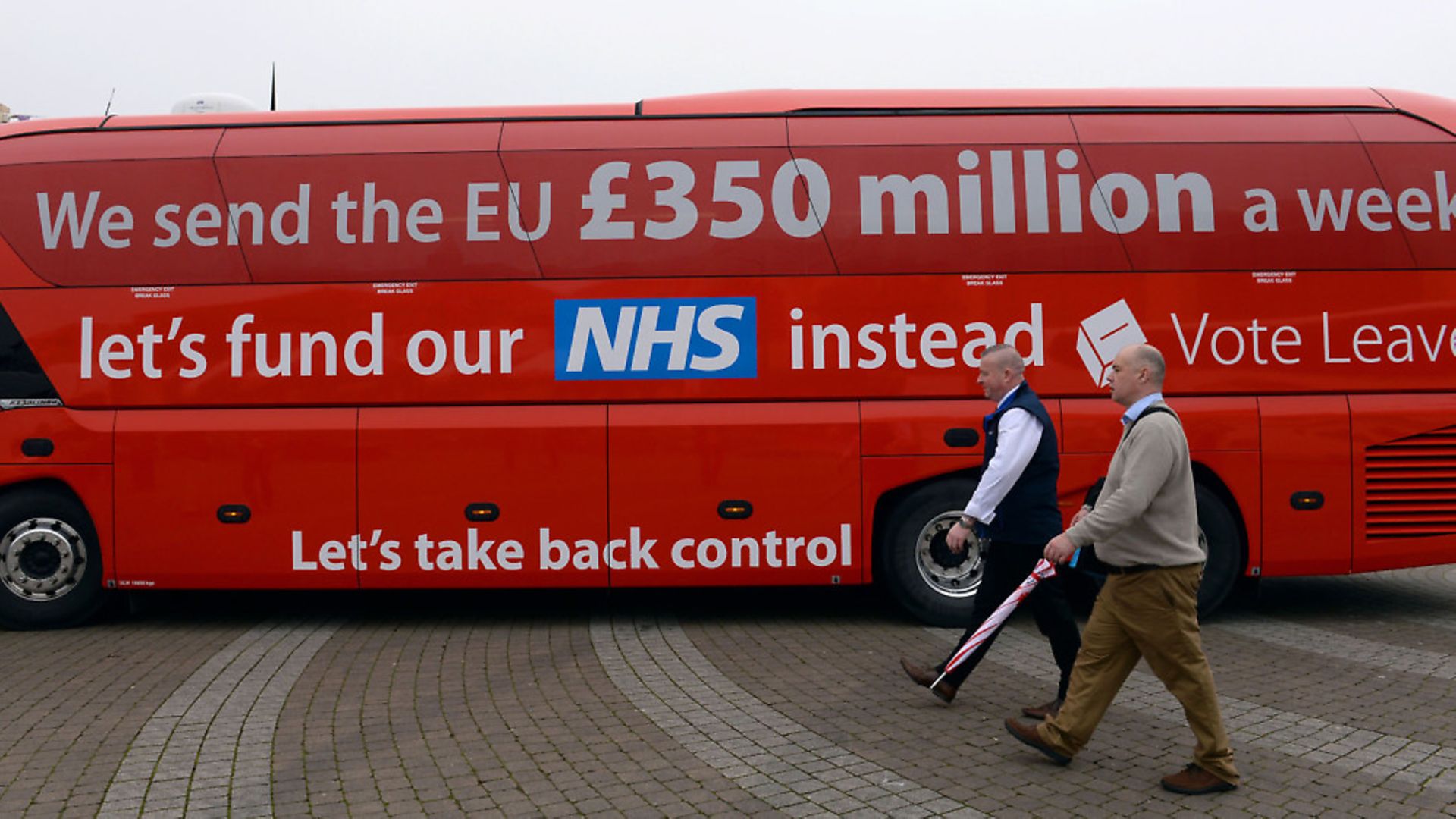
The idea that the NHS could in any way benefit from Brexit is a myth. But, as DR MIKE GALSWORTHY explains, there is plenty of work to be done to drive this message home.
During the referendum the NHS was successfully used as leverage to increase support for Brexit, despite warnings from the majority of experts that leaving the EU would be bad for the health service. Since the vote there has been some reversal in the polls on the subject of whether Brexit will have a positive or negative impact on the NHS, but there remains a chasm between expert and public opinion.
What’s more, Theresa May’s recent pledge of an extra £20 billion in health funding, part-funded by a non-existent ‘Brexit dividend’, seems to have revitalised the red bus mythology, linking our departure from the EU to an improved NHS. Those of us in the health research and medical community still have much work to do.
Our ‘Healthier IN the EU’ campaign first set out its stall during the referendum.
In April 2016, we wrote a letter in the Times, signed by around 200 medical professionals, saying that healthcare and research would be more robust inside the EU; that the proposed Transatlantic Trade and Investment Partnership between Europe and the US would not privatise the NHS; that immigrants help more than strain the health service; and that any ‘Brexit dividend’ from pulling our net contribution would be far outweighed by the economic costs associated with our departure.
The Lancet and the British Medical Journal (BMJ) also came out for Remain.
As did the chief executive of NHS England, several Labour ex-health ministers, 60 former heads of medical royal colleges, 82% of the Society for Social Medicine, the Faculty of Public Health, the Royal College of Midwives and more than two dozen patient groups and representatives.
Unison announced that it would encourage its 1.3 million members to vote Remain and Dr Sarah Wollaston, the Conservative MP for Totnes, defected from the Leave campaign to Remain over the false claims being made about that extra £350 million for the NHS being unlocked by Brexit.
The BMJ ‘realised that we could not name one prominent national medical, research or health organisation that has sided with Brexit’.
And yet, as you can see on our graph, when the UK went to the polls in June 2016, for every two people who thought Brexit would be bad for the NHS, three believed it would be good for it. That is a depressing disconnect between expert and public opinion.
The day after the vote, Nigel Farage appeared on television disowning the £350 million figure. And from that point, the notion that Brexit would free up cash for the health service went into sleeper mode for almost exactly two years. The ‘good for NHS’ and ‘bad for NHS’ support remained neck-and-neck until summer 2017, when factors started alerting the public to the fact that Brexit posed strong threats to the health service. First was the revelation that the hiring of EU nurses had flat-lined, with a 96% drop in applications.
Then there was the realisation that the UK’s sudden departure from the Euratom organisation would threaten the country’s access to medical radioisotopes needed for cancer treatment and cancer scans.
These and other revelations about the impact of Brexit mean that – for the last year or so – those believing our departure from the EU would be bad for the NHS outnumber those who think the opposite (with a consistent 26% saying Brexit makes no difference and 17% saying they don’t know).
Yet the polls have very recently taken a turn with Theresa May’s announcement that the NHS would receive a £20 billion boost, despite the much-vaunted free money simply not existing.
Cast your eye back to the polling at the beginning of the graph.
In November 2015, 32% of the public thought Brexit would be good for the NHS, compared with 13% who thought it would be bad. That’s a 2.4:1 ratio. It’s the result, I believe, of decades of tabloid propaganda on two notions: firstly, that our contribution into the EU and single market has been a charitable gift rather than fruitful investment in our own broad economic protectorate; secondly, that immigration strains our NHS. We have let our opponents talk incessantly about the economics of drain, but failed to counterbalance that with discussion of the huge boon to the NHS that comes from immigration and from EU membership.
This is the battle that we must pick up in earnest now.
Warning: Illegal string offset 'link_id' in /mnt/storage/stage/www/wp-includes/bookmark.php on line 357
Notice: Trying to get property 'link_id' of non-object in /mnt/storage/stage/www/wp-includes/bookmark.php on line 37






